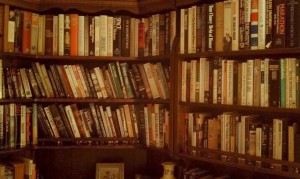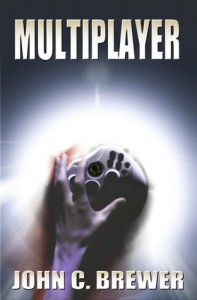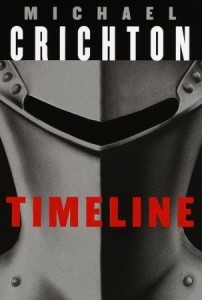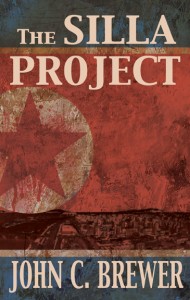 I’m tired of reading the same old thing. I love to read. I was barely speaking before I was reading, and the joy of discovering new ideas wrapped in a story has stayed with me my entire life. I gravitated toward science fiction as a teen because the stories were based on thought-provoking ideas. Some of them nearly forgot to have a story in the course of thoroughly exploring the ramifications of a new concept. I prefer novels with stories, but they have to leave me thinking after I’ve turned the last page or else, for me, it has been a waste of time. But that is why I’ve come to hate books. More accurately, I hate most of the fiction offerings being pushed on us lately. They don’t leave me thinking about anything.
I’m tired of reading the same old thing. I love to read. I was barely speaking before I was reading, and the joy of discovering new ideas wrapped in a story has stayed with me my entire life. I gravitated toward science fiction as a teen because the stories were based on thought-provoking ideas. Some of them nearly forgot to have a story in the course of thoroughly exploring the ramifications of a new concept. I prefer novels with stories, but they have to leave me thinking after I’ve turned the last page or else, for me, it has been a waste of time. But that is why I’ve come to hate books. More accurately, I hate most of the fiction offerings being pushed on us lately. They don’t leave me thinking about anything.
As a fiction author, I am supposed to read. Reading helps me hone my craft. But honestly, while I have read and rated books that compare well to the general offerings out there, I can count on one hand the books I have read in the past ten years that satisfied me by having a good story AND something to think about. What are those books? Off the top of my head, I can think of four:
 (1) The Kite Runner by Khaled Hosseini. This isn’t my type of book, but I was not familiar with the history and culture of Afghanistan nor had I ever thought about how the lives of immigrants and refugees in the United States compared to their former lives. This book gave me a glimpse into those worlds, and I learned from it.
(1) The Kite Runner by Khaled Hosseini. This isn’t my type of book, but I was not familiar with the history and culture of Afghanistan nor had I ever thought about how the lives of immigrants and refugees in the United States compared to their former lives. This book gave me a glimpse into those worlds, and I learned from it.
 (2) Multiplayer by John C. Brewer. When I started writing, I intended to write for young adults so I have read a lot of YA novels. They tend to be either “issue” books. which I don’t care for, or vapid and focused on the emotional torments of sex and popularity. Multiplayer was a breath of fresh air in that genre, but more important for me was the exploration of the capabilities of virtual world that resides as close as our computer or game console. It also challenges assumptions made in our society, but I’ll avoid giving you a spoiler. This is novel fit for any age, especially adults who will find a world that exists around them that they knew nothing about.
(2) Multiplayer by John C. Brewer. When I started writing, I intended to write for young adults so I have read a lot of YA novels. They tend to be either “issue” books. which I don’t care for, or vapid and focused on the emotional torments of sex and popularity. Multiplayer was a breath of fresh air in that genre, but more important for me was the exploration of the capabilities of virtual world that resides as close as our computer or game console. It also challenges assumptions made in our society, but I’ll avoid giving you a spoiler. This is novel fit for any age, especially adults who will find a world that exists around them that they knew nothing about.
 (3) Timeline by Michael Crichton. Since it was published in 1999, this isn’t a recent book, but I first read it four years ago. The story didn’t entirely capture me, to be honest. But I still have to include it on the list for the underlying idea – travelling through the quantum foam. There are some faint echoes of this idea in my own novel, Foreseen.
(3) Timeline by Michael Crichton. Since it was published in 1999, this isn’t a recent book, but I first read it four years ago. The story didn’t entirely capture me, to be honest. But I still have to include it on the list for the underlying idea – travelling through the quantum foam. There are some faint echoes of this idea in my own novel, Foreseen.
 (4) The Silla Project by John C. Brewer. This may be the perfect combination of an action-packed thriller, an education into a country few of us know anything about, and an exploration of the very real process of controlling a population’s thoughts and beliefs.
(4) The Silla Project by John C. Brewer. This may be the perfect combination of an action-packed thriller, an education into a country few of us know anything about, and an exploration of the very real process of controlling a population’s thoughts and beliefs.
There is a fifth book on my list isn’t available yet, but is one I’ve had the sheer pleasure of editing. It is an adventure packed with questions about social classes, government regulation, and the environment. An advance reader has described it as the best book he’s ever read. It certainly is one that will leave you thinking.
Why aren’t there more books like these? Because the “like these” is hard to duplicate. It isn’t repetition of a formula, so it is unpredictable to the publishing industry that must answer to their bosses who must answer to the shareholders. So they play it safe and take the easy path, offering you books that are “like” ones that have sold well before, hoping there will be a trend sufficient to keep them in their jobs. The proof lies in the story-vacant, increasingly tawdry books for middle-aged women. Or on the YA shelves of your bookstore filled with vampire and werewolf knock offs glomming on to the unexpected success of Twilight. I could go on about the “trends” in fiction, but that will have to wait for another blog post.
But this is why I hate books. They waste my time, with no benefit. I suspect I am not alone. Still, I wait for those gems to come along – the ones that change the way I view the world. Smart, intriguing books. We need more of them. Know of one? Let me know.
Why I hate books
As a fiction author, I am supposed to read. Reading helps me hone my craft. But honestly, while I have read and rated books that compare well to the general offerings out there, I can count on one hand the books I have read in the past ten years that satisfied me by having a good story AND something to think about. What are those books? Off the top of my head, I can think of four:
There is a fifth book on my list isn’t available yet, but is one I’ve had the sheer pleasure of editing. It is an adventure packed with questions about social classes, government regulation, and the environment. An advance reader has described it as the best book he’s ever read. It certainly is one that will leave you thinking.
Why aren’t there more books like these? Because the “like these” is hard to duplicate. It isn’t repetition of a formula, so it is unpredictable to the publishing industry that must answer to their bosses who must answer to the shareholders. So they play it safe and take the easy path, offering you books that are “like” ones that have sold well before, hoping there will be a trend sufficient to keep them in their jobs. The proof lies in the story-vacant, increasingly tawdry books for middle-aged women. Or on the YA shelves of your bookstore filled with vampire and werewolf knock offs glomming on to the unexpected success of Twilight. I could go on about the “trends” in fiction, but that will have to wait for another blog post.
But this is why I hate books. They waste my time, with no benefit. I suspect I am not alone. Still, I wait for those gems to come along – the ones that change the way I view the world. Smart, intriguing books. We need more of them. Know of one? Let me know.